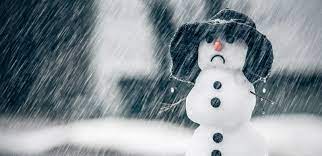Wintertime Blues
As wintertime settles in, the drop in temperature and a minor abundance of activities ultimately descends our moods. In the end, the bitter cold and gloomy setting that begins in the decline of fall and prolongs until early March—on top of what feels like a never-ending school year—isolates students both physically and mentally. However, our collective downgrade in attitude is not without reason, but rather a series of bodily malfunctions.
Although a definite cause of what many, including scientists, refer to as seasonal depression is unknown, there are reasonable conclusions that excuse the behavior. According to the Mayo Clinic, the number one hospital in the nation, the disruption can originate from your biological clock, serotonin levels, and/or melatonin levels. Since sunlight hours shorten, the days then become extended periods of darkness; this upsets your internal time settings and can lead to off-putting emotions. Adding on, serotonin, your mood brain chemical, can be triggered by the darkness, along with a decrease in melatonin, which all unbalance typical functions. For instance, abnormal sleep patterns, low energy, tiredness, and anxiety are typical and understandable patterns detected this time of year. As a result, we can find ourselves settling into emotions involving hopelessness, worthlessness, guilt, loss of interest, and other mood or behavioral shifts. Understanding the science does not dismiss other underlying issues. Meaning, general anxiety, stress, unhappiness, and lack of control that exist daily, throughout all seasons, can just feel even heavier in the wintertime. With this in mind, being a high school student right now can feel overwhelming, and honestly, pretty awful.
When speaking to students, there was a consensus that the winter season creates a gloominess in moods and causes school to feel like even more of a burden. For instance, junior Sammi Withrow says the winter feels “dark and depressing” and junior Alex Basmadjan adds that “hav[ing] a lot of homework” makes “it feel stressful and overwhelming,” which is ultimately “counterproductive.” Even more so, senior Nina Georgoff “wish[es] teachers would be more understanding of [students] not turning in [work] or just not showing up” because “in the wintertime [it’s] hard to find the energy to do anything, especially school.” Reflecting on seasonal depression, English department head Mr. Cierpial sympathizes that “it is hard for teachers to gauge how it affects students, but clearly when you have months of dreary days it’s just gonna weigh on you.” Overall, both students and teachers are noticing or understanding that there is a decline in motivation for school in the winter because of the somber weather period.
With this in mind, it’s understandable if wintertime is feeling emotionally exhausting, you are not alone. However, managing this disheartening season involves taking care of yourself and prioritizing your needs. If you are less motivated, from missing just one assignment, to multiple days of school, your goal is to take care of yourself. In the end, if needed, let your teachers know and acknowledge that the feelings are real, but they are temporary, and the season will be over soon.
Hey everyone! My name is Sarah and this is my first year on staff. I’m so excited to be the editor for the sports section and get first-hand experience...







